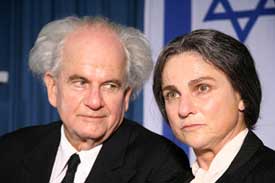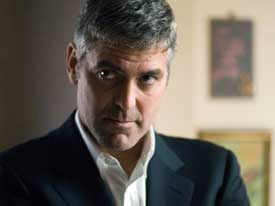 When one thinks of Jerusalem, the literal meaning of the name–City of Peace–might not be the first notion that comes to mind. However, the current limited theatrical release “O Jerusalem” depicts the desire for peace, for the city and the region, among those involved in the events surrounding the creation of Israel in the late 1940s.
When one thinks of Jerusalem, the literal meaning of the name–City of Peace–might not be the first notion that comes to mind. However, the current limited theatrical release “O Jerusalem” depicts the desire for peace, for the city and the region, among those involved in the events surrounding the creation of Israel in the late 1940s.
Director Elie Chouraqui successfully brings the eponymous book by Dominique Lapierre and the late Larry Collins to the big screen–40 years after it was first released, and only after multiple directors, including Costa-Gavras and William Friedkin, took their turns.
This was clearly a passion project for Chouraqui, as his credits also include co-star, co-writer, and producer. He takes this story, based on historical accounts blended with fictional characters, and gives insight to the audience, which can get lost in news reports depicting hate in the region today.
Chouraqui doesn’t hide the hate that was felt by a portion of those in the Arab, British, and Jewish populations of that time, but he highlights those with the hope for peace.
The story kicks-off in 1946 New York, where an American Jew and World War II veteran named Bobby Goldman (J.J. Feild) runs into Saïd Chahine (Saïd Taghmaoui), an Arab American from Jerusalem, as news about the assault at the Hotel King David in Jerusalem hits the radio airwaves.
A friendship blooms as the two debate the prospective creation of a Jewish state. A year later, Bobby is placed in the middle when their Jewish friend Jacob (Mel Raido) says he’s going to Jerusalem to help, and then Saïd reports that his uncle Abdel Khader (Peter Polycarpou) has called him back home to Jerusalem. So the friends go to Jerusalem blending feelings of duty to those from their respective backgrounds, to each other, and to the overall expectation of peace.
One of the most poignant scenes is when Saïd and Bobby overlook the Church of the Holy Sepulchre, the Dome of the Rock, and Wailing Wall from Saïd’s family home. Bobby says, “My God.” To which Saïd responds, “If God is not here, he is nowhere.”
And so the film blends the color of Jerusalem’s diversity, the tensions among the communities, and authentic events and characters with fictional characters based on a mix of real people.
An issue with the film is how short it is. Transforming a 500-plus-page book into a 100-minute feature wasn’t an easy feat for Chouraqui and co-writer Didier Lepecheur, and their effort leaves the moviegoer wanting to see more. We’re given a fair depiction of the period’s various perspectives, and it wants further character exploration in the likes of Ben Gurion, Khader, Meir, and other supporting roles. Even in touching scenes, like when British high Commissioner Sir Allan Cunningham provides Rabbi Weingarten with the keys of the Old City, it feels as if something is missing.
What isn’t lost in this dramatic feature is the hope factor. From Golda Meir and Transjordan’s King Abdullah reiterating their calls for peace in a secret meeting, to Bobby and Saïd’s reinforcements to each other and those around them, the message is clear.
The most literal and moving message of peace in the movie is its invocation of the Psalms, which state, “Pray for the peace for Jerusalem… Peace be within thy walls, and prosperity within Thy palaces.”
It is difficult for one to leave the theater without wanting to believe and reiterate the call for peace.
Watch a clip of the movie here.
— By Sara Shereen Bakhshian


